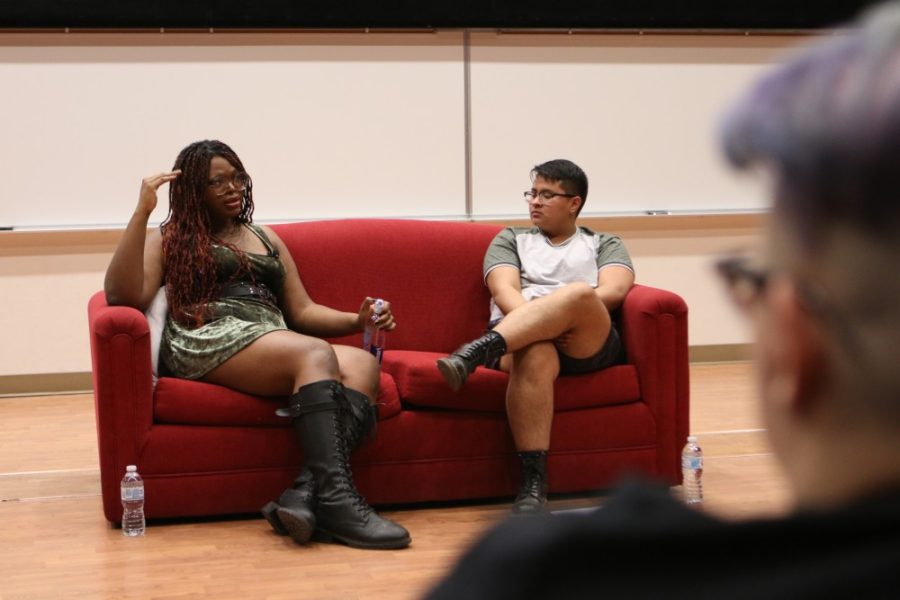From April 2 to April 6, the Associated Students of the University of Arizona hosted ‘I Will Week’ to bring awareness of sexual assault to campus.
The campaign began two years ago when ASUA President Matt Lubisich saw something similar at the University of Michigan and wanted to bring it to the UA.
“We wanted to do a week-long worth of events, bring in a keynote speaker, have students sign a pledge, pass out T-shirts, all that stuff,” Lubisich said. “And [we wanted to] kind of do something that’s more university-centered, more student-centered.”
Now in its third year, this year’s week followed the same model, with different events from the April 2 through April 5, such as ‘Never Passover Consent,’ ‘Sip N’ Bitch: A Space for Survivors,’ and ‘Law & Rape Culture.’
The events covered topics such as consent, rape culture and a space for sexual assault survivors to speak.
There was also a resource fair on the UA Mall all week with booths aimed to educate students on certain terms that they hear of, but perhaps don’t understand.
“A lot of students on campus, especially with first-year students on campus, you hear these words,” said incoming ASUA President Natalynn Masters. “You hear ‘sexual assault,’ you hear ‘rape culture,’ ‘consent,’ and it’s all these different words that we throw around, but they don’t know the actual definitions of them.”
On Friday, April 6, YouTube personality and transgender activist Kat Blaque served as the keynote speaker.
However, the campaign has already become larger than one week. Masters, stepping into the role of ASUA president next year, hopes to continue expanding the campaign.
“As we start expanding, it starts to seep into more of the university, and it begins to become a culture,” Masters said.
As an ASUA at-large senator, Kate Rosenstengel played a large part in planning this years’ ‘I Will Week.’
Rosenstengel will serve as administrative vice president of ASUA next year, and she wants to make sure the campaign has the resources to keep going.
“I think this is one of the most important things we put on,” Rosenstengel said. “Especially this year, being on the forefront [of] planning and seeing all that goes into it, making sure that no matter what I’m always fighting for I Will Week, I’m always making it happen.”
This year, the campaign also got a boost of administrative support in the form of UA President Dr. Robert Robbins, who lent his marketing team to the campaign to make a series of videos about ‘I Will Week.’
The campaign was a source of pride for Robbins, so much so that he bragged about the student-led effort to the Arizona Board of Regents when they were on campus on Thursday, April 5.
“As we’re going through a review of our Title IX issues and how we’re dealing with sexual assault on our campus, I’m incredibly proud of the great work that our students are doing to lead this effort,” Robbins said.
For Lubisich, it was a “huge change of pace” from the past two years of the campaign.
“We did this only from student capacity in the last two year’s,” Lubisich said. “We had various administrators involved, but this wasn’t a top-down approach. This was very grassroots.”
Lubisich will end his term as ASUA president this year. He wants people to know how important it is that I Will Week started as a student-run campaign.
“The students have the power to drive institutional change,” Lubisich said. “Before we started this campaign, there wasn’t student involvement; there wasn’t a lot of institutional backing.”
Lubisich is also proud that the campaign started more conversations around sexual assault on campus. However, the campaign is only the beginning.
“This is just a starting point for students to continue to grow,” Lubisich said. “So that after I graduate, then people like Natalynn can make it even better with an administration that’s willing to make it better and has the resources to do so.”
Follow Jordan Williams on Twitter









